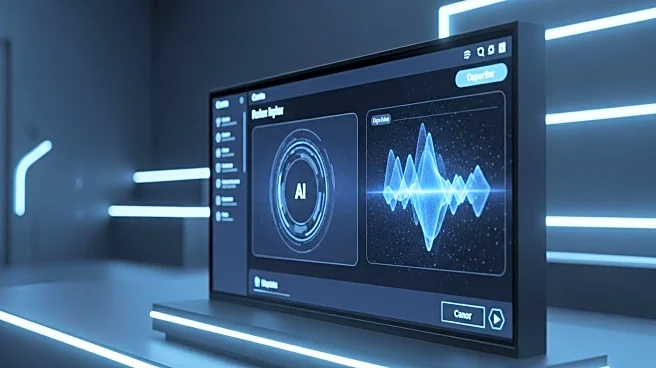What is the story about?
What's Happening?
OpenAI is reportedly developing a new social network app, Sora 2, which will feature a TikTok-style video scroll filled entirely with AI-generated content. The app will utilize OpenAI's video generation model to create short videos from text, photos, or existing videos. Users will interact with the platform through familiar social media actions like liking, commenting, and remixing posts. However, the app introduces a controversial feature where users must verify their identity via facial recognition, allowing their likeness to be used in AI-generated videos.
Why It's Important?
The introduction of Sora 2 highlights the growing influence of AI in social media, potentially transforming how content is created and consumed. This development raises significant privacy and ethical concerns, particularly regarding the use of facial recognition and the manipulation of personal likenesses. The platform's reliance on AI-generated content could also impact traditional content creators, as it shifts the focus from human-generated to machine-generated media. As AI continues to integrate into social media, it will be crucial to address these challenges to ensure user privacy and content authenticity.
What's Next?
As OpenAI prepares to launch Sora 2, it will need to address potential regulatory challenges, particularly concerning privacy and deepfake legislation. The app's success will depend on its ability to balance innovative AI features with user trust and safety. Stakeholders, including policymakers and privacy advocates, will likely scrutinize the platform's impact on user data and content integrity. OpenAI's approach to these issues could set precedents for future AI-driven social media platforms.















